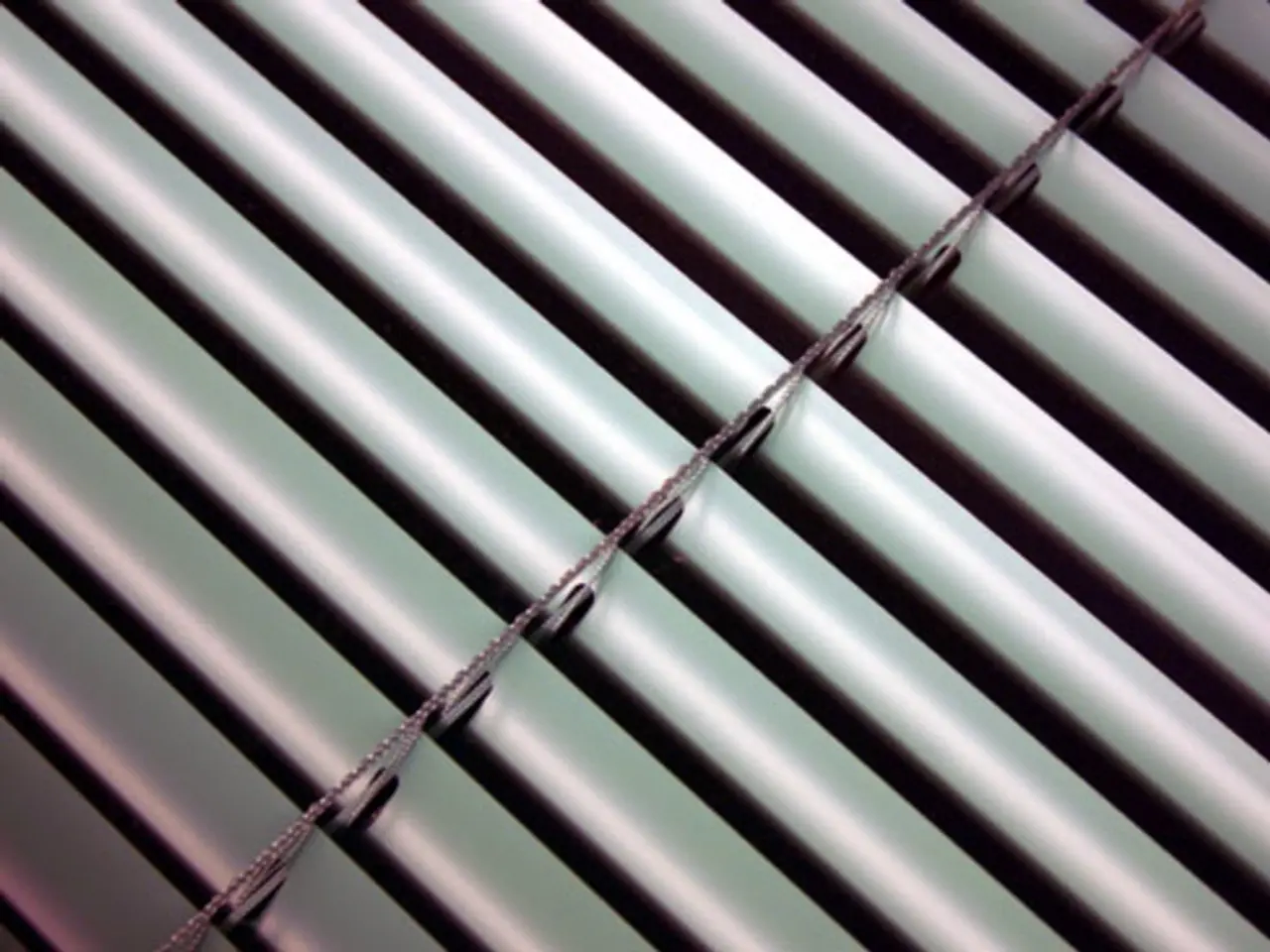Duration of double-glazed windows: learn about their lifespan and 4 indicators that suggest window deterioration
In the realm of home improvements, double-glazed windows serve a crucial role in energy efficiency, noise reduction, and overall aesthetics. To ensure these benefits endure, it's essential to understand the lifespan and maintenance requirements of different frame materials.
Condensation trapped inside double glazing is an indicator of a failed seal and requires replacement. Damage to the frame or seal should be repaired or replaced as soon as possible. Regular cleaning and annual inspections can help extend the lifespan of your double-glazing.
Draughts around windows can indicate damaged seals, requiring repair or replacement. Excessive outside noise can mean the insulating gas within the glazing has degraded, reducing its insulating properties. Caulking windows can be a short-term fix for draught issues, but replacing the seals or the entire window may be necessary in severe cases.
The typical lifespan of different types of double-glazed window frames is as follows:
- Timber frames: Hardwood timber frames can last 60 years or more when properly treated and maintained. Softwood timber frames generally have a shorter lifespan but still typically last longer than uPVC. Timber requires regular maintenance such as painting and sealing to achieve these lifespans.
- uPVC (vinyl) frames: These usually last 15 to 30 years, with many sources indicating around 15–20 years under normal conditions, though premium vinyl windows can last up to 40 years if well maintained. uPVC is low maintenance but may suffer from discoloration and some degradation over time.
- Aluminium frames: Aluminium is very durable, often lasting 40 years or more with minimal upkeep. It resists weathering better than uPVC and maintains its structural integrity and appearance longer. Although aluminium frames usually cost about 30% more upfront, their extended lifespan and durability can make them more economical in the long run.
For comparison:
| Frame Type | Typical Lifespan | Maintenance Needs | Notes | |------------|---------------------------|--------------------------|--------------------------------------------| | Timber | 60+ years (hardwood); less for softwood | Regular (painting, sealing) | Requires upkeep to prevent decay | | uPVC | 15–30 years (20 typical); up to 40 years in premium models | Low | Risk of discoloration, less durable than others | | Aluminium | 40+ years | Minimal | Higher upfront cost, very durable |
Monthly cleaning is advisable for aluminium frames in coastal or industrial areas. Regular cleaning is recommended for uPVC frames to keep them in top condition.
If wood is severely rotted or structurally compromised, consultation with a specialist may be needed to assess whether repairs or full replacement are required. On the other hand, if exposed to extreme weather, the lifespan of double-glazed windows can be around 20 years.
Thermally broken aluminium frames improve energy performance, making them an excellent choice for those seeking energy efficiency. Lubricating moving parts of your windows with WD-40 Smart Straw Oil Lubricant can ensure they operate smoothly and prolong the lifespan of the hardware.
A guide to new window costs and a double glazing price guide can help in the process of replacing double-glazing. With this knowledge, you can make informed decisions about maintaining and replacing your double-glazed windows to ensure they serve you well for many years to come.
- In the pursuit of energy efficiency and noise reduction, double-glazed windows, a key element in home improvements, deserve careful attention.
- The life expectancy of various frame materials in double-glazing significantly impacts their performance over time.
- Trapped condensation within double glazing often signifies a failed seal, necessitating replacement, while damaged frames or seals should be promptly repaired or replaced.
- Maintenance like annual inspections and regular cleanings can extend the lifespan of your double-glazing, minimizing the need for replacements.
- Timber frames, particularly hardwood, show remarkable longevity with proper treatment and maintenance, often lasting 60 years or more.
- uPVC (vinyl) frames, which have a typical lifespan of 15 to 30 years, may need replacing if they exhibit discoloration or degradation over time.
- Despite a higher initial cost, aluminium frames are known for their increased durability, often lasting 40 years or more with minimal maintenance.
- To maintain aluminium frames in industrial or coastal areas, monthly cleaning is advisable, while regular cleaning is recommended for uPVC frames.
- For homeowners aiming for energy efficiency, thermally broken aluminium frames offer enhanced energy performance, making them an attractive choice for long-term benefits.




